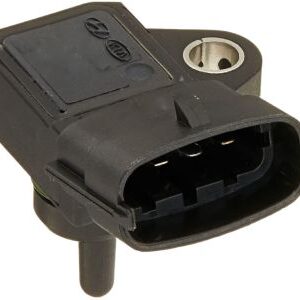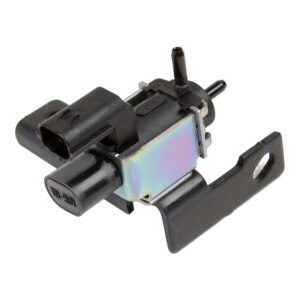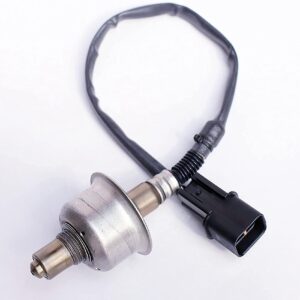Title: Understanding Knock Sensors: Safeguarding Your Engine’s Health
Introduction:
In the intricate dance of internal combustion engines, there’s a silent guardian protecting against potentially catastrophic damage – the knock sensor. Despite its unassuming appearance, this small component plays a critical role in detecting abnormal combustion events and ensuring your engine runs smoothly. Let’s delve into the world of knock sensors, exploring their function, importance, and the indispensable role they play in preserving your engine’s health.
Understanding Knock Sensors:
Knock sensors, also known as detonation sensors, are specialized devices designed to detect the characteristic sound frequencies associated with abnormal combustion events, such as detonation or pre-ignition. They are typically mounted on the engine block or cylinder head and monitor engine vibrations to identify knocking or pinging.
How Knock Sensors Work:
The operation of knock sensors is based on the principle of piezoelectricity. When the engine experiences knocking or pinging, caused by irregular combustion events, it produces distinct vibrations that are detected by the knock sensor. The sensor converts these vibrations into electrical signals, which are then transmitted to the engine control unit (ECU). The ECU interprets these signals and adjusts engine timing and fuel delivery to mitigate knocking, thereby preventing potential engine damage.
Importance of Knock Sensors:
Knock sensors serve several crucial functions:
1. Engine Protection: By detecting abnormal combustion events, knock sensors help prevent engine damage caused by detonation or pre-ignition. This safeguards vital engine components such as pistons, connecting rods, and cylinder walls.
2. Performance Optimization: Knock sensors ensure smooth and efficient engine operation by allowing the ECU to adjust timing and fuel delivery to mitigate knocking. This helps maximize power output, fuel efficiency, and overall performance.
3. Emissions Control: Properly functioning knock sensors contribute to lower emissions by optimizing combustion efficiency and reducing the likelihood of incomplete combustion events that can produce pollutants.
4. Longevity: By preventing engine knock, knock sensors help extend the lifespan of engine components, reducing the need for costly repairs and replacements.
Maintenance and Replacement:
To ensure optimal engine performance and reliability, it’s essential to properly maintain knock sensors. Over time, knock sensors may become contaminated with dirt, oil, or other debris, leading to decreased sensitivity or failure. Regular inspection and replacement of knock sensors as part of routine maintenance can help prevent issues and ensure proper function. Signs of a faulty knock sensor include engine knocking or pinging, decreased engine performance, and illuminated check engine light.
Conclusion:
In conclusion, knock sensors may be small in size, but their impact on engine performance, efficiency, and longevity is significant. By detecting abnormal combustion events and allowing for timely adjustments, knock sensors play a crucial role in safeguarding your engine and optimizing its performance. So, the next time you start your engine, remember to appreciate the silent sentinel watching over your vehicle – the knock sensor.
In stock (can be backordered)
$18,926.31
Title: Understanding Knock Sensors: Safeguarding Your Engine’s Health
Introduction:
In the intricate dance of internal combustion engines, there’s a silent guardian protecting against potentially catastrophic damage – the knock sensor. Despite its unassuming appearance, this small component plays a critical role in detecting abnormal combustion events and ensuring your engine runs smoothly. Let’s delve into the world of knock sensors, exploring their function, importance, and the indispensable role they play in preserving your engine’s health.
Understanding Knock Sensors:
Knock sensors, also known as detonation sensors, are specialized devices designed to detect the characteristic sound frequencies associated with abnormal combustion events, such as detonation or pre-ignition. They are typically mounted on the engine block or cylinder head and monitor engine vibrations to identify knocking or pinging.
How Knock Sensors Work:
The operation of knock sensors is based on the principle of piezoelectricity. When the engine experiences knocking or pinging, caused by irregular combustion events, it produces distinct vibrations that are detected by the knock sensor. The sensor converts these vibrations into electrical signals, which are then transmitted to the engine control unit (ECU). The ECU interprets these signals and adjusts engine timing and fuel delivery to mitigate knocking, thereby preventing potential engine damage.
Importance of Knock Sensors:
Knock sensors serve several crucial functions:
1. Engine Protection: By detecting abnormal combustion events, knock sensors help prevent engine damage caused by detonation or pre-ignition. This safeguards vital engine components such as pistons, connecting rods, and cylinder walls.
2. Performance Optimization: Knock sensors ensure smooth and efficient engine operation by allowing the ECU to adjust timing and fuel delivery to mitigate knocking. This helps maximize power output, fuel efficiency, and overall performance.
3. Emissions Control: Properly functioning knock sensors contribute to lower emissions by optimizing combustion efficiency and reducing the likelihood of incomplete combustion events that can produce pollutants.
4. Longevity: By preventing engine knock, knock sensors help extend the lifespan of engine components, reducing the need for costly repairs and replacements.
Maintenance and Replacement:
To ensure optimal engine performance and reliability, it’s essential to properly maintain knock sensors. Over time, knock sensors may become contaminated with dirt, oil, or other debris, leading to decreased sensitivity or failure. Regular inspection and replacement of knock sensors as part of routine maintenance can help prevent issues and ensure proper function. Signs of a faulty knock sensor include engine knocking or pinging, decreased engine performance, and illuminated check engine light.
Conclusion:
In conclusion, knock sensors may be small in size, but their impact on engine performance, efficiency, and longevity is significant. By detecting abnormal combustion events and allowing for timely adjustments, knock sensors play a crucial role in safeguarding your engine and optimizing its performance. So, the next time you start your engine, remember to appreciate the silent sentinel watching over your vehicle – the knock sensor.
| Warehouse | Inventory at warehouse 2 |
|---|




Get E-mail updates about our latest products and special offers.
Sensors and More is Jamaica’s ultimate online auto parts store. Established in 2020, we specialize in genuine electrical parts for Japanese, Read more…
Reviews
There are no reviews yet.